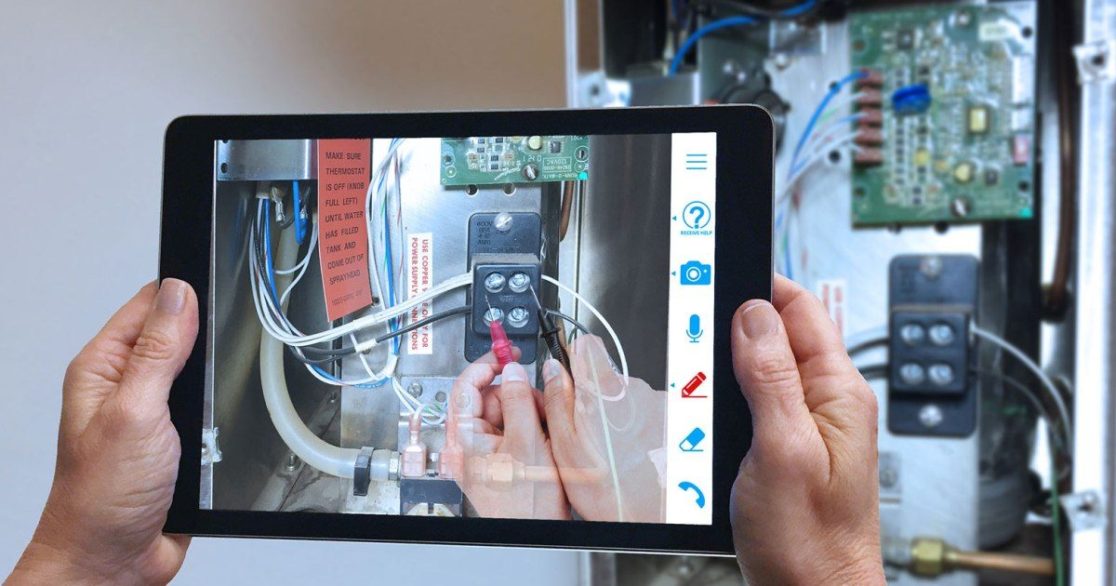How work and business is likely to change long term once we get past the crisis, and the capabilities you need in your business solutions to support this.
In recent weeks the world has been exposed to a global crisis, and as a result an unexpected and dramatic change of how we live our daily lives, communicate with our friends and family, and even how we work and do business. It’s to be expected that these changes, where work is concerned, will be here to stay in some capacity and will change the way we do business for the long term.
It’s very likely that the outcome of this crisis will be a major shift in the way we plan for the future of our businesses. In particular, the technology that we use to provide the agility and flexibility to swiftly adapt to sudden changes.
When looking at these changes and shifts in business three areas for consideration that come to mind: remote working, resource planning and supply chain validation.

1. Remote Working
Remote working will be here to stay to some extent. Much of the business world has realized that life can exist without lots of the face-to-face interaction that we once relied on. In some ways remote working was viewed as the ‘backup’ plan. However, the world has seen the educational system move to online learning, conferences and events become virtual webinars and meetings run online. All these activities have been moved to the virtual world with a surprisingly limited impact on productivity, communication and engagement.
For IFS in the Middle East and South Asia, we have secured the delivery of our projects remotely, with 93 percent of our projects continuing ‘business as usual’ in the virtual space. A large factor in realizing this is because of the great leadership and innovation demonstrated by our customers, who have driven the adoption of remote working within their organizations.
“We are IT professionals and it is now 2020! We must be thinking out of the box and be innovative in engaging new technologies to support working remotely and keep our project moving forward” – Emad Humam, Vice President Information Technology, International Maritime Industries.
Another good example of how new technology is enabling remote working is IFS Remote Assistance, delivered through Help Lightning, where a merged reality environment allows direct collaboration between remote field service workers, office-based support staff and customers as if they were side-by-side. This solution has never been more relevant as it ensure business continuity for those in the service industry during times of social distancing.
There are many substantial benefits to be realized from the implementation of IFS Remote Assistance:
- Enables at-risk technicians to work from home
- Faster remote response time
- Reduced margins
- Multiplying the utilization of the workforce
- Increased first-time fix rate
- Attract skilled workforce with innovative tools
- Real-time collaboration
- Customer satisfaction.
Learn more about IFS Remote Assistance in this customer use case.

2. Resource planning
This crisis has also resulted in a huge change in consumer demand. It has highlighted the ongoing discussion that manufacturing companies need to have some level of flexibility and agility to repurpose resources swiftly if needed.
For the manufacturing industry, there will now be a renewed focus on ‘resource planning’ and each businesses capability to repurpose their resources if needed to adapt swiftly to change. This change is not a simple process. It requires a system that can offer the ability to control detailed manufacturing processes, quality processes as well as optimizing resource planning and scheduling.
Just turn on the news and you will hear of incredible examples of manufacturers retooling to help produce supplies needed to save lives. Dyson is manufacturing ventilators, powered by the Dyson Digital Motor and re-engineered to meet ventilator requirements. Fashion label Armani announced it will be manufacturing single-use medical overalls. LVMH, the luxury goods company that owns Louis Vuitton, announced it will now shift the manufacturing of its perfumes to the production of hand sanitizer.
These are all very relevant examples of retooling, however, this repurposing isn’t a simple switch, and could be near impossible if a business doesn’t have the right software in place.

3. A renewed focus on supply chain validation
Some of the savviest, most forward-thinking businesses have been significantly impacted, some to complete collapse during the current pandemic as a result of breaks in their supply chains.
Moving forward from this experience we will see a drive-in requirement for ‘quality management’ within the core business systems, with supply chain risk analysis at the forefront of business planning. Businesses will be taking action to safeguard their supply chains from a possible future global crisis.
In order to reduce risk, there needs to be full visibility on the entire supply chain, and the right technology and solutions in place to have this view and act on anything that needs addressing. A structured audit process needs to be in place to vet any global suppliers. The right solution will provide an understanding of origin for the raw or semi-finished products and ensure that suppliers are complying with regulatory requirements. With this, risk can be reduced, but functionality such as ‘nonconformance management’ needs to be in place to address uncovered issues identified in the supply chain and react to them swiftly.
Right now, we are seeing an increase in early adoption of new technologies, people thinking outside of the box and a shift in the way we communicate and a new perspective and priority on agility. Learn more about IFS software and how it can help you and your business renew its focus on supply chain validation.
At IFS we #StandTogether with our employees, customers and partners. #ForTheChallengers pic.twitter.com/KKxSgv29yo
— IFS (@ifs) March 24, 2020
Do you have questions or comments?
We’d love to hear them so please leave us a message below.